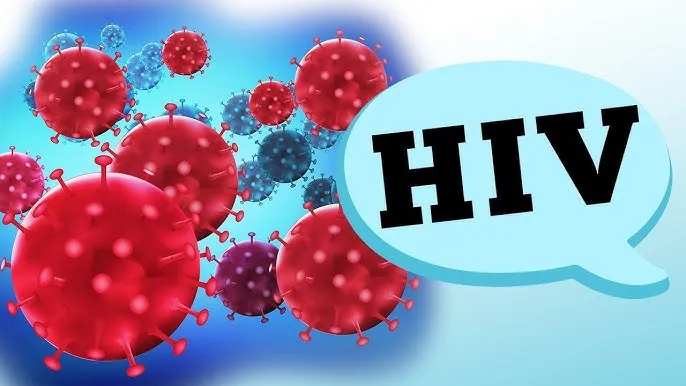
ViiV Healthcare CLARITY Study Shows Cabotegravir Long-Acting Injections More Acceptable and Preferred Over Lenacapavir
GSK plc (LSE/NYSE: GSK) announced today that ViiV Healthcare, the global specialist HIV company majority owned by GSK, with Pfizer and Shionogi as shareholders, has presented new data from the Phase I CLARITY open-label, crossover study. The study evaluated the acceptability, tolerability, and preference of two long-acting HIV injectable options: cabotegravir long-acting (CAB LA) and lenacapavir (LEN). Results demonstrated that CAB LA injections were significantly more acceptable, with fewer injection site reactions (ISRs) and higher preference among participants and healthcare providers (HCPs) after a single dose. The data were presented at the 20th European AIDS Conference (EACS) in Paris, France.
Key Findings from CLARITY
The CLARITY study involved 63 HIV-negative adult participants, randomized in a crossover design to receive a single injection of CAB LA (one intramuscular injection) and LEN (two subcutaneous injections) two weeks apart. The primary endpoint assessed local reaction acceptability seven days post-injection.
- Acceptability: After one dose, 69% of participants rated CAB LA as “totally or very acceptable”, compared to 48% for LEN injections, a statistically significant difference (p=0.019).
- Preference: 90% of participants (54/60) preferred CAB LA over LEN, while only 10% preferred LEN. Among HCPs, 86% preferred CAB LA and 14% preferred LEN after reviewing a single dose of each therapy.
- Injection Site Reactions: ISRs were more frequent and visible with LEN than with CAB LA. Overall, LEN generated 538 ISR events versus 123 for CAB LA. Visible ISRs occurred in 221 participants receiving LEN versus 36 participants receiving CAB LA.
Participant and HCP Insights
The study also captured reasons for participant and HCP preferences:
Reasons for preferring CAB LA (n=54 participants):
- Less pain during injection administration (40/54)
- Less pain or soreness after the injection (33/54)
- Shorter duration of nodules or swelling (31/54)
- Smaller size of nodules or swelling (30/54)
Reasons for preferring LEN (n=6 participants):
- Less pain or soreness after injection (5/6)
- Shorter duration of nodules or swelling (3/6)
- Smaller nodules or swelling (3/6)
- Fewer side effects (3/6)
HCP rationale for CAB LA preference (n=6):
- Fewer reported side effects (5/6)
- Less severe side effects (4/6)
- Less pain during injection (4/6)
One HCP preferred LEN due to the ease of injection preparation.
Detailed ISR Outcomes
Participants received a total of 61 CAB LA injections and 124 LEN injections during the study. Three participants only received one injection due to non-drug-related reasons. Key ISR results included:
- Pain: Reported in 80% of CAB LA recipients and 82% of LEN recipients (RR 0.98 [0.82, 1.16]).
- Induration: 18% CAB LA vs 87% LEN (RR 0.21 [0.12, 0.36])
- Nodules: 33% CAB LA vs 74% LEN (RR 0.44 [0.30, 0.65])
- Erythema: 12% CAB LA vs 57% LEN (RR 0.20 [0.10, 0.42])
- Swelling: 34% CAB LA vs 58% LEN (RR 0.59 [0.40, 0.89])
No serious adverse events or discontinuations due to drug-related adverse events were reported.
Clinical Implications
Dr. Jean van Wyk, Chief Medical Officer at ViiV Healthcare, commented:
We believe long-acting innovations will play a critical role in the global response to ending HIV and AIDS. Understanding potential differences in acceptability and tolerability is an important consideration when choosing between long-acting injectables. The CLARITY study showed that after a single dose, more individuals and healthcare professionals preferred cabotegravir over lenacapavir injections. These early findings provide valuable insights into long-acting injectable options to empower individuals and their healthcare providers to make fully informed choices.”
The findings emphasize the importance of patient and provider choice when selecting long-acting injectable therapies for HIV prevention or treatment. The higher acceptability and preference for CAB LA may influence adherence and satisfaction, potentially improving outcomes in real-world settings.
Study Design
The open-label crossover design allowed participants to experience both injectables and provide direct comparisons:
- Day 1: Participants received either CAB LA or LEN
- Day 15: Participants received the alternative injection
- Follow-up assessments focused on ISR acceptability, injection site visibility, pain, and participant/HCP preferences
This approach provided robust insights into patient-centered factors that are increasingly recognized as critical for long-acting HIV therapies.
Further results and additional analyses from the CLARITY study are expected to be presented at future medical conferences, providing additional data on long-term tolerability, adherence, and patient preference. These insights will support informed decision-making for healthcare providers and patients considering long-acting injectable HIV options.





